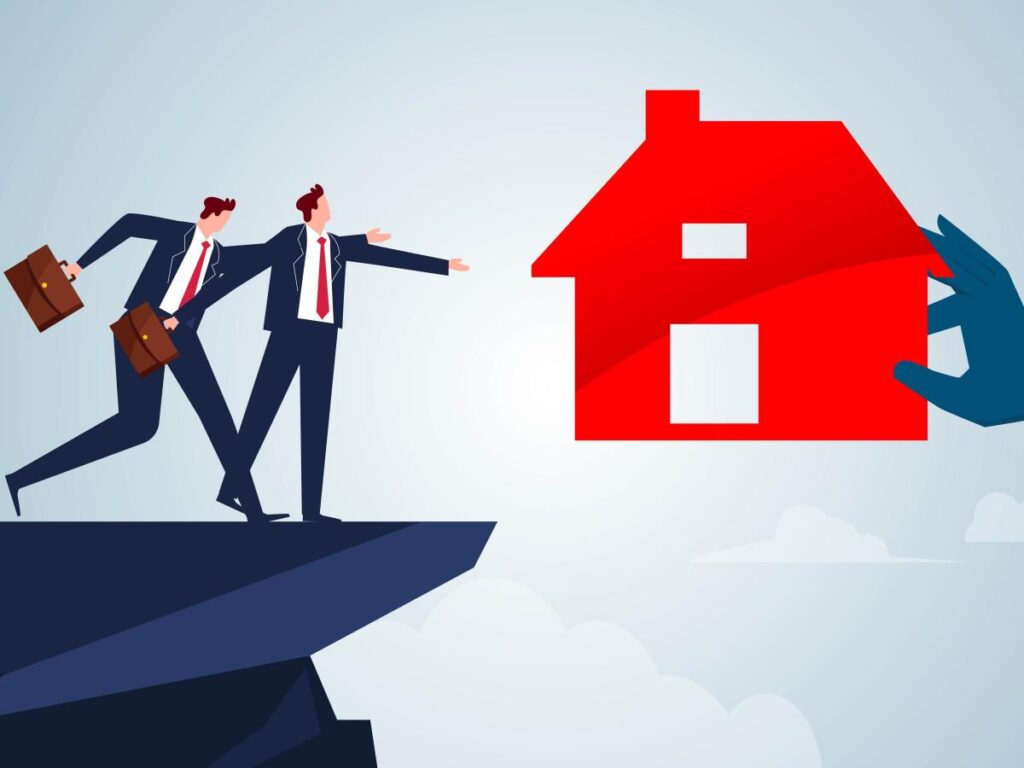-
It’s never been harder to build wealth in modern times, experts tell Business Insider.
-
That’s largely because it’s become much harder to buy a home, the “big ticket” to wealth for most Americans.
-
Less wealthy Americans have also been slammed by high inflation, high borrowing costs, and meager wage gains.
Never in modern times has it been harder to build wealth. That’s partly thanks to sky-high interest rates in the economy, which have spiked borrowing costs and pushed home ownership out of reach for many Americans.
An inaccessible housing market spells trouble for those looking to build up their nest eggs, according to BankRate senior industry analyst Ted Rossman. Over the last 10 years, the median US home has appreciated 58% in value, according to Federal Reserve data.
That’s not quite as good as, say, investing in the S&P 500. The benchmark stock index has appreciated 152% over the past ten years – but real estate is still critical part of becoming wealthy, Rossman said, since most Americans have their net worth tied up in a home.
And now, given the high barriers to the housing market, he estimated it could be the worst time to grow your wealth since the start of the modern era, which he defines as the end of World War II.
“It’s harder than ever to buy a home. And homeownership is often the ticket to wealth for a lot of people,” Rossman told Business Insider. “We know that people aren’t always great about saving for a rainy day or saving for retirement.”
In 2022, US homeowners had a median net worth of $396,200 – nearly 40 times that of renters, whose median net worth measured around $10,400, Federal Reserve data shows.
With ever-more Americans priced out of the housing market, that gap could grow wider. Over 75% of homes on the market are now too expensive for middle-class buyers, according to a June study from the National Association of Realtors and Realtor.com. Home sales in September, meanwhile, plummeted to their lowest level in 13 years, and consumer sentiment has similarly plunged. A record 85% of Americans surveyed by Fannie Mae last month said it’s a bad time to buy a home.
The struggle to build wealth — by way of the housing market or other means — has been reflected in the latest economic data. Since the start of the year, the top 0.1% of Americans have gained $1.3 trillion in wealth, while the bottom 50% have gained just $330 billion, per Fed data.
That gap is even worse than it was during the same time frame before the pandemic in 2019, when the top 0.1% gained $1.3 trillion over the first three quarters, and the bottom 50% gained $240 billion in wealth.
Rampant inequality
America’s wealth inequality problem isn’t new. The share of wealth belonging to the bottom 50% of Americans has stayed dismally low and has remained flat for decades, though it’s recently been exacerbated by a handful of factors.
Higher interest rates have raised borrowing costs on other types of debt in addition to mortgages, which have a greater impact on lower-income and poor Americans, according to Michael Neal, an equity scholar at the Urban Institute.
The bottom 50% of Americans had around $6.1 trillion in debts but just $9.4 trillion in assets in the second quarter, Fed data shows, reflecting a debt ratio of 65%. Meanwhile, the top 0.1% had $150 billion in debts and $18.7 trillion in assets.
“I think the degree to which tighter financial conditions limit access to wealth, it’s going to disproportionately impact [the] low income,” Neal said.
Another problem is that hourly wage growth hasn’t kept pace with inflation until just recently. Wages grew 5.2% year-over-year in October – above the pace of inflation, which was 3.2% in the month. That’s helping narrow the wealth gap, but it hasn’t been enough to reverse the effects of sky-high inflation last year, when prices climbed 9.1% in the first half of 2022, hitting a 41-year-high.
“Only recently have we started to see wage gains outpacing inflation. We need more of that,” Bankrate’s Rossman said. “Especially for young adults getting established, key costs such as higher education, housing and childcare have been rising faster than wages for decades.”
Neither Rossman nor Neal see the wealth gap improving anytime soon. According to Rossman, inequality won’t reverse unless wage growth continues to keep pace with inflation. But even that recent trend is a double-edged sword, since rising wages are themselves inflationary.
“I think [wealth inequality] will probably continue to grow because I don’t really see anything coming to disrupt that train,” Rossman said. “It kind of feels like an object in motion says in motion, and I think it would be difficult to upend that.”
Read the original article on Business Insider
Read the full article here

